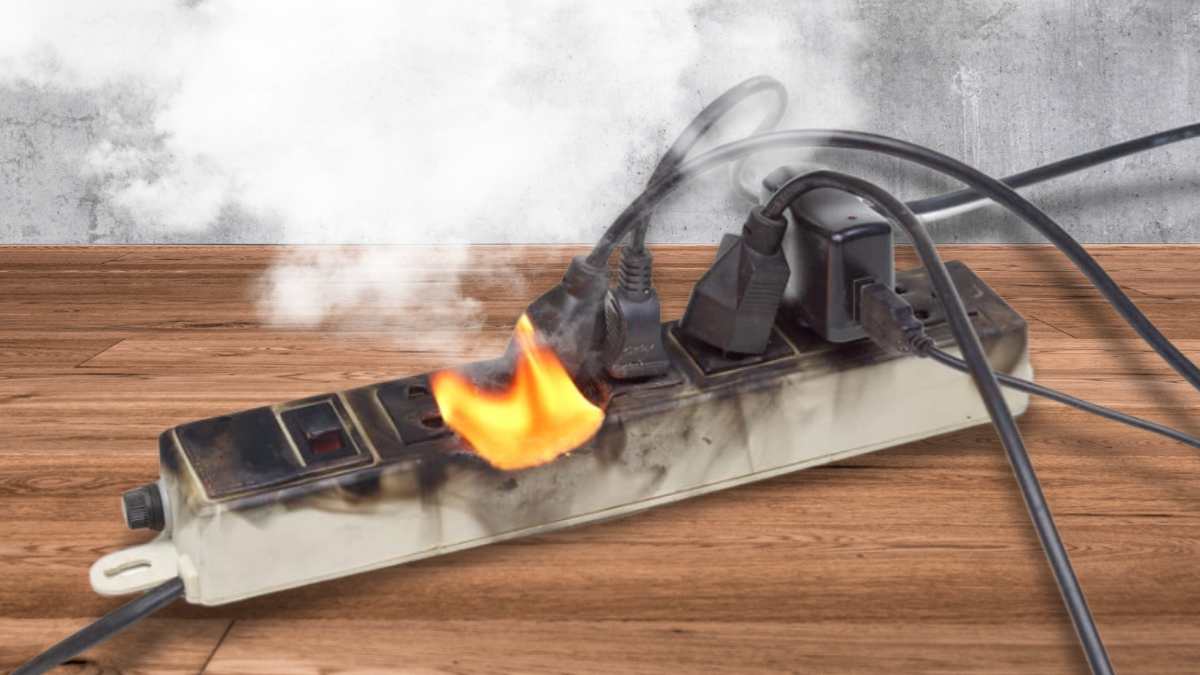As winter’s chill settles in, opting to use a space heater instead of your central heating system can be a smart way to reduce your utility bills. However, it’s essential to use these powerful devices with caution. One critical safety tip is to avoid plugging large electrical appliances, like space heaters, air fryers, and microwaves, into extension cords or surge protectors.
Paul Martinez, a professional electrician and the owner of Electrified NYC, emphasizes the importance of plugging any appliance that uses 1,500 watts or more directly into a wall outlet. “No extension cords whatsoever,” he strongly advises for these high-powered appliances.
The Importance of Choosing the Right Extension Cords
“Many individuals lack awareness about extension cords,” says Martinez. “When using a 14-gauge extension cord to run appliances with a heating element like a toaster oven, microwave, or dishwasher, the cord cannot handle the amperage, leading to potential overheating and fires. This is a common cause of fires in New York City.”
Always check the gauge of the extension cord. A 14-gauge cord is typically insufficient for high-amperage appliances. Avoid using extension cords for permanent appliance connections; use them only temporarily. Regularly inspect cords for damage or wear to prevent potential hazards.
Being informed about the correct use of AC units and extension cords is crucial for safety and efficiency. Make sure to choose the right equipment to avoid unexpected expenses and dangers.
5 Appliances You Should Never Plug Into an Extension Cord
Extension cords are not designed to handle the electrical current required by such powerful devices. Using them can result in overheating, which could lead to burning and, in the worst case, fires. It’s crucial to be aware of which appliances should never be connected to extension cords. Here are seven to remember: space heaters, air fryers, microwaves, refrigerators, freezers, portable air conditioners, and washing machines.
1. The Versatility of Air Fryers
Air fryers have become a staple in many kitchens, loved for their ability to quickly cook and warm a variety of foods, from full meals to side dishes. However, it’s crucial to be mindful of their power requirements. While their wattage varies with size, larger models can consume up to 2,000 watts. This high energy demand makes them a significant fire hazard if connected to extension cords or power strips.
Always plug your air fryer directly into a dedicated wall outlet. It’s a space-saving advice: If counter space is limited, store your air fryer when not in use and bring it out as needed. From talking fridges to iPhones, our experts simplify the complexities of modern living, offering insights and advice on integrating technology safely and efficiently.
2. Microwaves: A Kitchen Essential
Microwaves are an indispensable appliance in most kitchens. While some homes feature built-in microwaves, others require finding a suitable spot for these powerful machines. Due to their substantial energy consumption, microwaves should always be connected to a dedicated circuit. Our team of experts is dedicated to helping you navigate the intricate world of technology, making your life a little less complicated and a lot safer.
When it comes to electrical safety, understanding the risks associated with improper use of extension cords is crucial. One of the most common mistakes people make is daisy chaining, which involves plugging extension cords into one another. This dangerous practice can cause circuits to overheat, leading to a potential fire hazard. It’s essential to remember that extension cords should always be used responsibly and never connected to other extension cords.
3. Space Heaters: A Notorious Fire Hazard
Electric space heaters have a notorious reputation for being a major cause of fires. According to the Consumer Product Safety Commission, an estimated 1,700 fires per year involved portable space heaters between 2017 and 2019, with some tragically resulting in fatalities. It’s paramount to handle these devices with caution.
As electrical expert Martinez explains, using an extension cord with a floor heater can cause the plug to melt, sparking a fire. Therefore, it’s critical to avoid using extension cords or power strips with appliances like space heaters. These should be plugged directly into wall outlets to ensure safety. Never connect extension cords to each other.
Avoid using extension cords with high-wattage appliances like space heaters. Always plug space heaters directly into a wall outlet. Regularly inspect cords for damage or signs of wear. By following these guidelines and exercising caution, you can ensure a safer home environment when using electric appliances and extension cords.
4. Toasters and Toaster Ovens
Despite their compact size, toasters are surprisingly power-hungry and pose a significant fire risk when plugged into an extension cord. This risk increases with toaster ovens, which require even more energy, typically between 1,200 to 1,400 watts. Always ensure these appliances are directly connected to a wall outlet to prevent any hazards.
5. Refrigerators
While refrigerators generally consume less power—ranging from 300 to 800 watts—compared to other kitchen gadgets, they are constantly running. Therefore, using an extension cord could still lead to issues. Even if it doesn’t ignite a fire, it might cause the fridge to malfunction, potentially spoiling your food.
Extra bonus: Air Conditioning Units
Air conditioning units draw too much power to be safely used with an extension cord or power strip. It’s crucial to plug them directly into a wall outlet. Expert advice, like that from Martinez, emphasizes the importance of choosing the right AC unit for your space. Utilize an online BTU calculator to determine the appropriate unit needed to efficiently cool your area.
Many people are lured by the prospect of purchasing a 5,000 BTU air conditioner simply because it’s on sale for $99. They mistakenly believe this bargain will effectively cool their home, but often it doesn’t meet their needs. As Martinez explains, “[AC units] are designed to cycle on and off to conserve energy. If you choose a unit that’s too small, the compressor will have to work much harder.”
This misjudgment can lead to several issues: your home may never reach the desired cooling level, your electricity bill could soar, and if the AC unit is connected to an extension cord, there’s a risk of fire.




